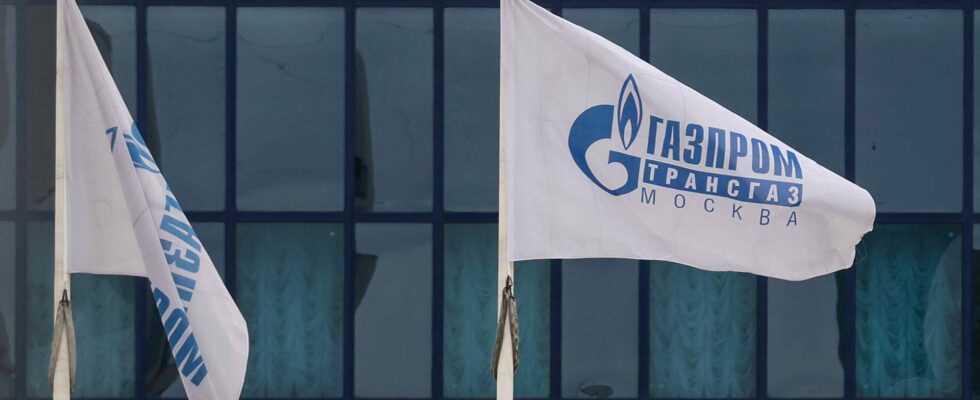Vladimir Putin assured that Russian gas consumers will have to pay in rubles from Friday.
Vladimir Putin announced Thursday that consumers of Russian gas from “unfriendly” countries will have to have accounts in rubles in Russia to pay their bills from Friday, a measure mainly affecting the European Union.
However, the price of gas remains denominated in the currency of the current contracts, usually in euros or dollars.
The EU is Russia’s main client and it has been seeking since the offensive in Ukraine to wean itself off its dependence on Russian hydrocarbons.
The Europeans, like other countries deemed “unfriendly”, “must open accounts in rubles in Russian banks. And from these accounts they will have to pay for the gas delivered and this as of tomorrow (Friday),” Vladimir Putin told the television after signing a decree to that effect.
This decree entrusts operations to Gazprombank, a subsidiary of the gas giant Gazprom.
He added that in the event of refusal, “the current contracts will be stopped”.
Mr Putin recalled that this measure was a response to the freezing of some 300 billion dollars of foreign currency reserves that Russia had abroad, a sanction decided by the West in retaliation for the offensive in Ukraine.
“No change”, assures the Kremlin
Therefore, imposing the purchase of rubles to its customers “strengthens the economic and financial sovereignty” of Russia, according to the Russian president.
Moscow published a list of “unfriendly” countries in early March, which includes the United States, members of the European Union, the United Kingdom, Canada, Japan, Switzerland, Taiwan, South Korea, Norway and Australia.
Mr Putin insisted that paying in rubles would have no effect on volumes or prices, which are formulated in most contracts in foreign currencies.
De facto, as the Kremlin explained Thursday morning, buyers will have to carry out a foreign exchange transaction in Russia.
“For the one who receives the Russian gas, who pays for the deliveries, there is in fact no change. They just acquire rubles for the amount in currency which is provided for in the contract”, underlined Dmitry Peskov, door- word of the Kremlin.
He said Putin and German Chancellor Olaf Scholz, along with their advisers, discussed the new system in detail on Wednesday.
The German Chancellor nevertheless assured Thursday that payments will continue to be made in euros.
“It is written in the contracts that the payments are made in euros and sometimes in dollars”, explained Mr. Scholz during a press conference with his Austrian counterpart, Karl Nehammer.
“I made it clear to the Russian president that it would stay that way” and “companies want to be able to pay in euros and will do so,” he added.
Surprise inspections in Germany at Gazprom premises
Russian gas is crucial for the EU, which has been seeking since the beginning of Moscow’s offensive in Ukraine to get rid of this dependence.
The Twenty-Seven now want joint purchases of gas and the United States will increase their deliveries of liquefied natural gas (LNG) to Europe.
In addition, the European Commission carried out surprise inspections in Germany at the premises of Gazprom, which it suspects of having raised gas prices in Europe by abusing its dominant position.
The decision to switch to ruble invoicing should allow Russia to support its national currency, which has been heckled by sanctions, but will deprive it of a source of foreign currency.
Already, Russia obliges its exporters, including Gazprom, to convert 80% of their turnover into rubles.
These measures and a key interest rate of 20% enabled the Russian currency to recover. After dropping considerably in the wake of the start of the Russian offensive on February 24, it is back to levels close to those before the assault.
According to figures from the Russian Central Bank, its reserves – which still include the blocked 300 billion – rose between February 18 and March 25 from 643.2 to 604.4 billion dollars, giving an idea of the interventions to support the economy. Russian economy for a month.
